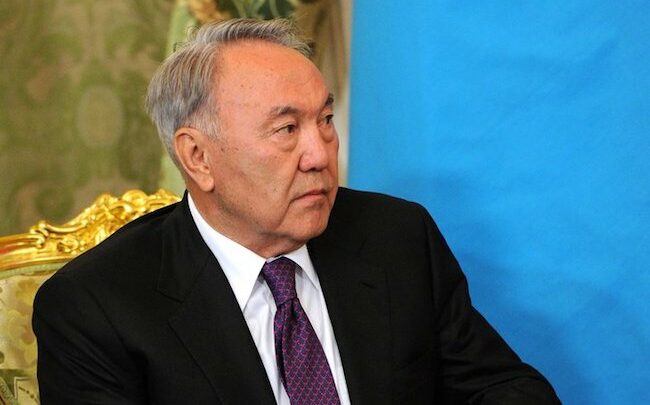
By Alexander Brown
The weekend of October 26th saw another round of mass protests in both the capital and major cities across Kazakhstan, decrying perceived Chinese influence in the economy in the wake of a plan to relocate Chinese factories in Kazakhstan, a move that is seen by opponents as undermining local economies. The protests come at a time when Kazakh citizens are already distrustful of their current government and threatens the stability of the nation, which is the most likely to be able to develop as a regional influence. If the protest movement continues, the Kazakh ruling party is liable to be forced to take drastic action, either in a full-scale political crackdown on the protest movement, or an appeal to China that will allow them to remain in power through outside support.
The main issue at hand for the protest movement is an agreement between the central government and China to build 55 new factories in Kazakhstan, which Kazakh officials claim will provide 20,000 job openings across the nation and boost local economies. However, opponents claim that the proposed factories are simply replacements for aging Chinese factories which will then simply be staffed by the current Chinese workers, who will remain in Kazakhstan as long-term guest workers. Chinese-owned businesses in foreign countries have a tendency to bring large amounts of foreign workers with them and establish them in those countries, rather than using them as temporary trainers for locals who would then replace the trainers for the long-term. Chinese-owned businesses are also accused of paying local workers less than their Chinese counterparts, and attempting to crowd out local competitors that leave more local workers unemployed; which only serves to increase public suspicion.
However, the protests leave the Kazakhstani government between a rock and a hard place. Kazakh government officials are not willing to anger China unnecessarily, due to the large amount of aid they receive from China (over US$27 billion dollars in this agreement alone) and the diplomatic and economic pressure China could then place on them for going astray. However, China remains unpopular with Kazakh citizens in general, and they are unafraid to tell their leaders that. Case in point, the agreement to build the Chinese industrial sites in Kazakhstan was officially enacted two years ago, but has not been fully implemented. The fact that protests are only occurring now is a warning of storm clouds on the horizon for the Kazakh government, which is considered to still be under the control of former president Nursultan Nazarbayev.
Nazarbayev stepped down from the presidency last march but continued as the chairman for life of the security council (an advisory board for military and law enforcement policy decisions) and retained control over the ruling political party, Nur Otan. As chairman, Nazarbayev has a constitutionally protected right to continue making unilateral decisions in those areas. Most Kazakh people see this as just a ruse for Nazarbayev to continue ruling the country, and public discontent with the situation has risen as the government has taken more unpopular steps like their growing attachments with China. However, the Kazakhstani government has also striven to maneuver itself into a position where it can have more freedom of action in both its own affairs and the affairs of the region, which had before been heavily influenced by Russia. As Kazakhstan has developed on a national level, it has shown interest in moving out of the shadow of the bear. Back in 2017, Kazakhstan took an extremely visible step away from Russia with its decision to change the national alphabet from Cyrillic to Latin roots. This was seen as the natural culmination of a series of actions taken by the Kazakh government to establish themselves as an independent nation, without antagonizing the Russians into justifying reciprocative actions against them.
Kazakhstan has been host to an ongoing process for mediation in ending the Syrian conflict since 2015 with the Astana talks, and last year hosted a rare meeting between the heads of the central Asian nations, which was focused on reducing tensions between the five over water rights, seen as the major stressor of relations between the five nations. Kazakhstan has also taken a leading role in the development of Afghanistan, providing over US$75 million in direct aid to the Afghani government, as well as developing a foreign study program for Afghanis and providing US$6 million dollars to the Afghan National Defense and Security Forces. Kazakhstan’s direct interest in Afghanistan has had the effect of both declaring an area of vital regional importance for Central Asia, and to establish it as the responsibility of the Central Asian nations, rather than Russia, China or India, who all have historic claims to influence in the nation.
Increasingly, Kazakhstan is seen as the natural leader in handling Central Asian disputes, and that comes at the cost of Russia. However, the rising influence of China in the nation could quickly undo all the efforts the Kazakh government has taken to achieve their place in Central Asia. The protest movement is not concerned about that, but their increasingly visible protests about Chinese influence will force the government, which has currently been playing the middle ground of stopping visible protests without cracking down on the populace in general, to choose whether they want to accept Chinese influence in Kazakhstan for their own benefit, or forfeit increasing amounts of aid and risk the hostility of a major power to attempt to establish themselves as a leader of the Central Asian region.
Alexander Brown is a graduate of Pennsylvania State University with dual bachelors degrees in Criminology and International Politics with a concentration in National Security. He is an independent foreign policy contributor. All views expressed are his own




